Our SDGs Initiatives

Marine Bio supports the Sustainable Development Goals (SDGs).
Health Supporting Products
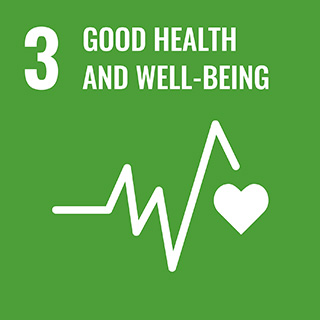
Coral Farming
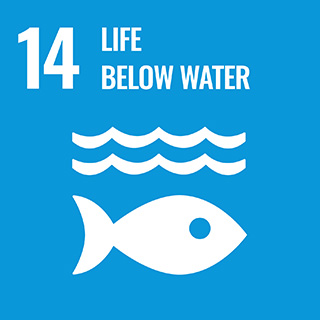
GMP and FSSC22000 certifications

Employment supports – remote offices, staggered commute hours, parental leaves.
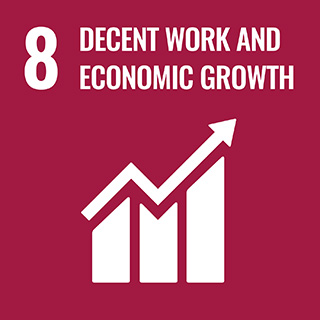
Installation of solar panels at our factories
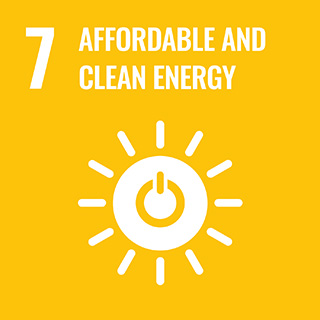
Member Organizations and Activities
Promotion of various initiatives such as sponsoring the FC Ryukyu in Okinawa as a contribution to regional and social development, manufacturing and selling water purification packs in order to reduce plastic containers.
We are members and supporters of organizations aiming to protect and improve the coral environment. We continue our effort to contribute to the local Okinawa society with our sincere appreciation.
World Wildlife Fund (WWF)
In September 2022, Marine Bio Co., Ltd. made a contribution of ¥200,000 in support of WWF Japan.
Japan Coral Reef Society
As a group member of the Japanese Coral Reef Society, we support the wellness of corals.

Coral Conservation Activity
Crown-of-thorns starfish devouring living corals in the sea of Okinawa has been a problem. Marine Bio invests in a volunteer group* aiming to protect Okinawa’s coral reefs. As a part of coral conservation activities, Marine Bio supports the extermination of crown-of-thorns starfish.
* This volunteer organization is not affiliated with the above organizations.

FC Ryukyu Partner
As part of the promotion of professional sports in Okinawa Prefecture, we support FC Ryukyu, which aims to enter the J1 football league.

SAVE THE CORAL (Cultivated Coral Transplantation Project)
In order to protect the sea of Okinawa with some of the most beautiful coral reefs in the world, we participate in transplanting and releasing cultivated corals.
*A portion of the sales of coral-derived lactic acid bacteria is used for the cultivation of coral transplants.

Installation of Solar Panels
In 2016, 780 solar panels were installed on the entire factory roof of our Nagano Factory located in Minami-Shinshu, surrounded by a rich nature overlooking the two Alps.
We aim to contribute to CO2 reduction and decarbonization.


Okinawa Coral
Okinawa, an island where nature with abundant vitality remains. It is an island made of the uplifted coral and coral is the source of this wonderful nature and people.
Coral is an Animal
Corals are often misunderstood as plants because of the shape of their branches and leaves but they are animals that grow from eggs. Scientifically called coelenterates, they are classified as a sea anemones. Once a year on a summer night with a full moon, pink eggs are laid one after another in the ocean. The appearance is so beautiful that it is also called “summer snow”.
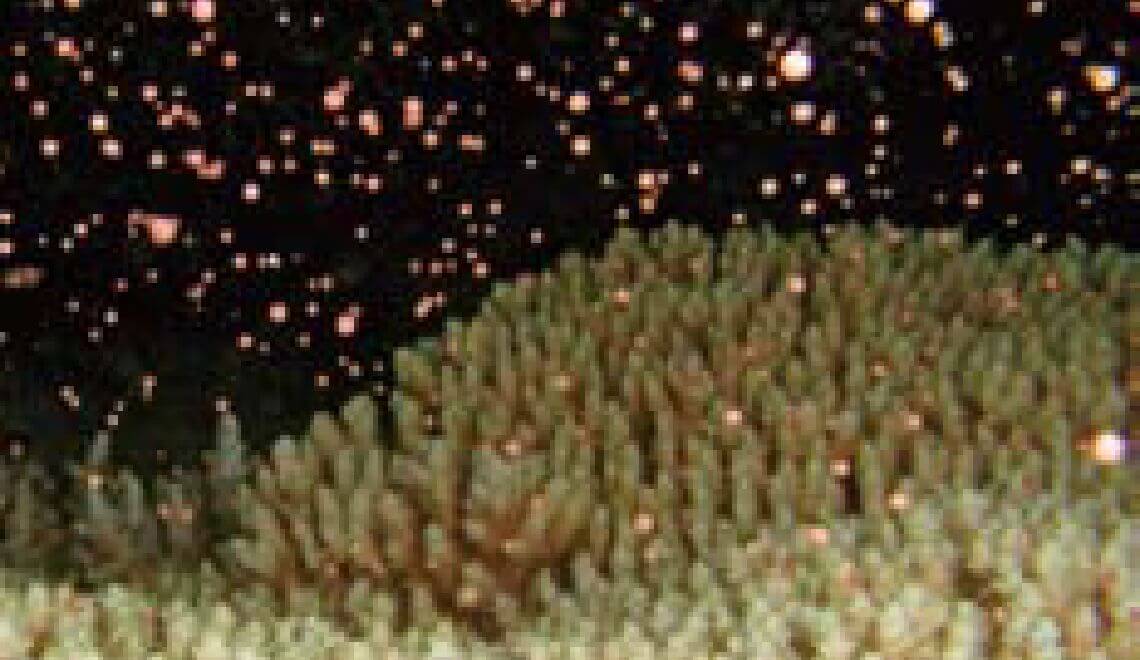
Corals are Ocean Purifiers
Since corals live symbiotically with algae called brown algae, they have the effect of discharging carbon dioxide and oxygen from the algae.
In addition, it is said to have an extremely important role in the natural environment, such as purifying seawater and serving as an important habitat for marine life.
More than 800 types of Coral
There are various types of coral, and currently there are more than 800 types of coral in the world. More than 400 types of coral in Japan. Okinawa is known for unusually many types of corals. There are a wide variety of corals, but corals that form large reefs such as table corals are roughly classified as hermatypic corals. Corals that are used for gemstones are classified as non-hermatypic corals. Corals serve as nests for fish.
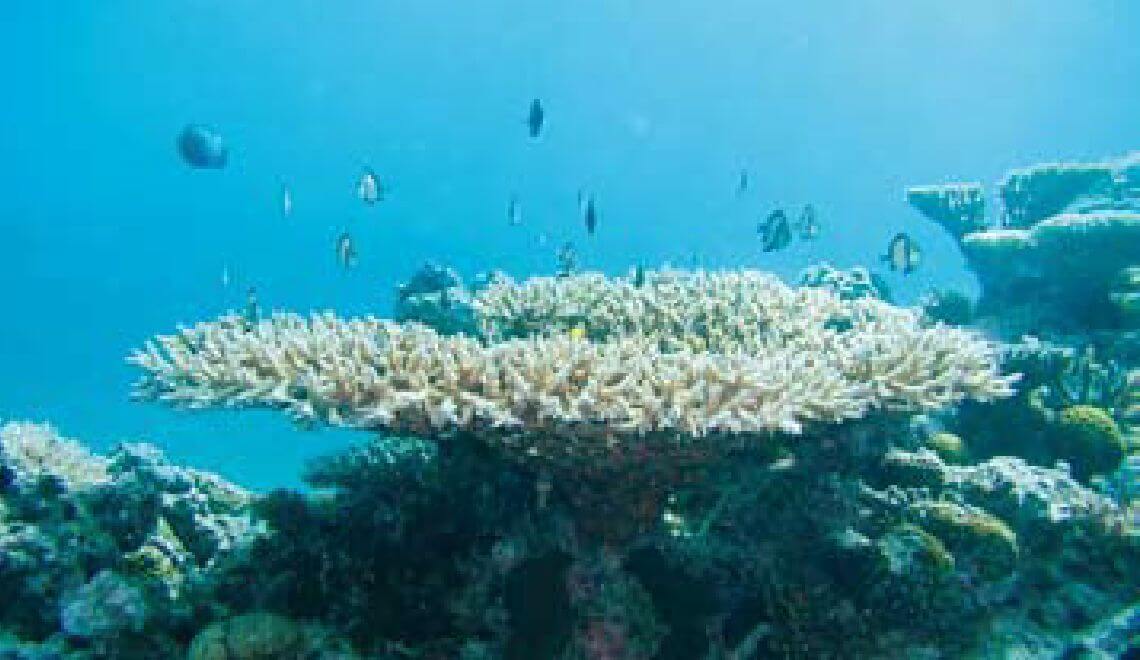
Weathered Reef-Building Coral Grains are a “Blessing of the Sea”
Reef-building corals that have reached the end of their lifespan become skeletal fossils, which over a very long period of time are crushed into small pieces by natural waves and currents, becoming sandy and depositing deep on the seabed. Scientific age determination results show the weathered reef-building coral grains we use are thousands to 20,000 years old. These weathered reef-building coral grains are truly a “Blessings of the Sea” rich in various nutrition of the sea.
Marine Bio provides the weathered reef-building coral grain to deliver healthy lives to the world.
Okinawa Coral rich in Marine Minerals accumulated over Thousands of Years
Commitment to 100% Made in Okinawa
Research papers on marine organisms and the results of our long-term research have confirmed that Okinawa’s corals have an unprecedented variety and purity. The seawater of subtropical Okinawa, moderate sunlight, and various microorganisms that live symbiotically in the sea of Okinawa’s coral reefs create the optimum environment for coral to grow. In the waters surrounding Okinawa, the risk of pollution is extremely low, and the corals grown in clean waters are characterized by low impurity content and high safety. Marine Bio products are 100% Okinawa coral with a focus on quality and safety.
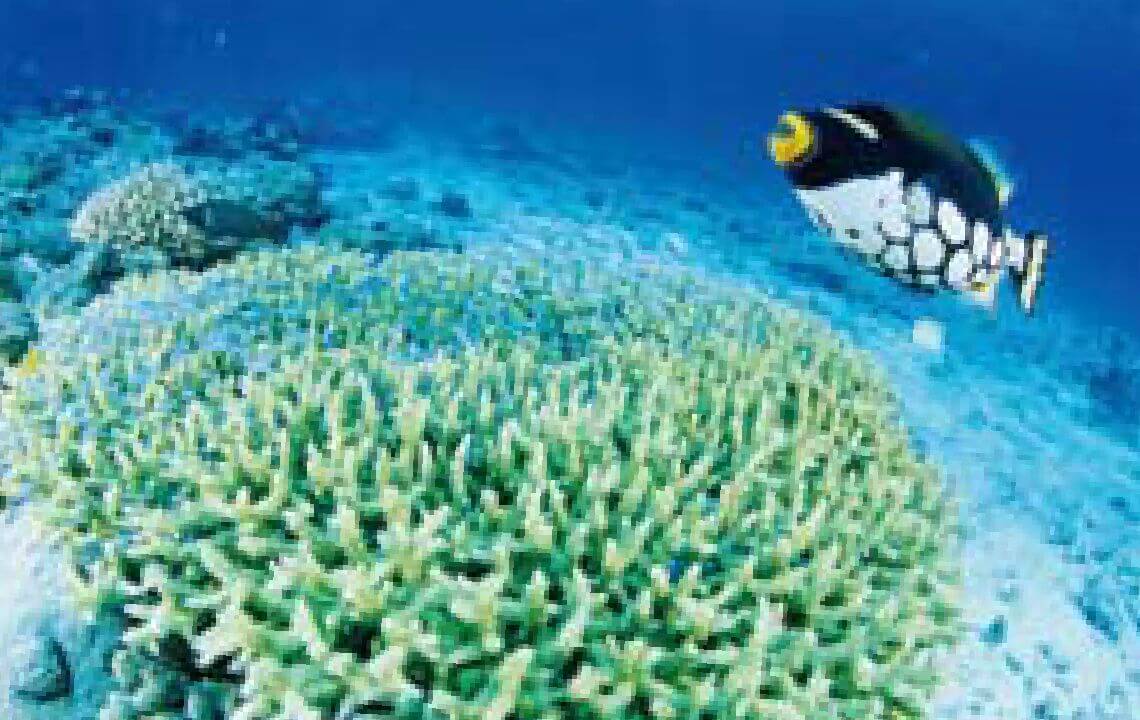
How Weathered Reef-Building Coral Grains are made
The skeleton of reef-building coral, which is the source of coral sand, is formed by ingesting abundant minerals such as calcium and magnesium from the ocean water.

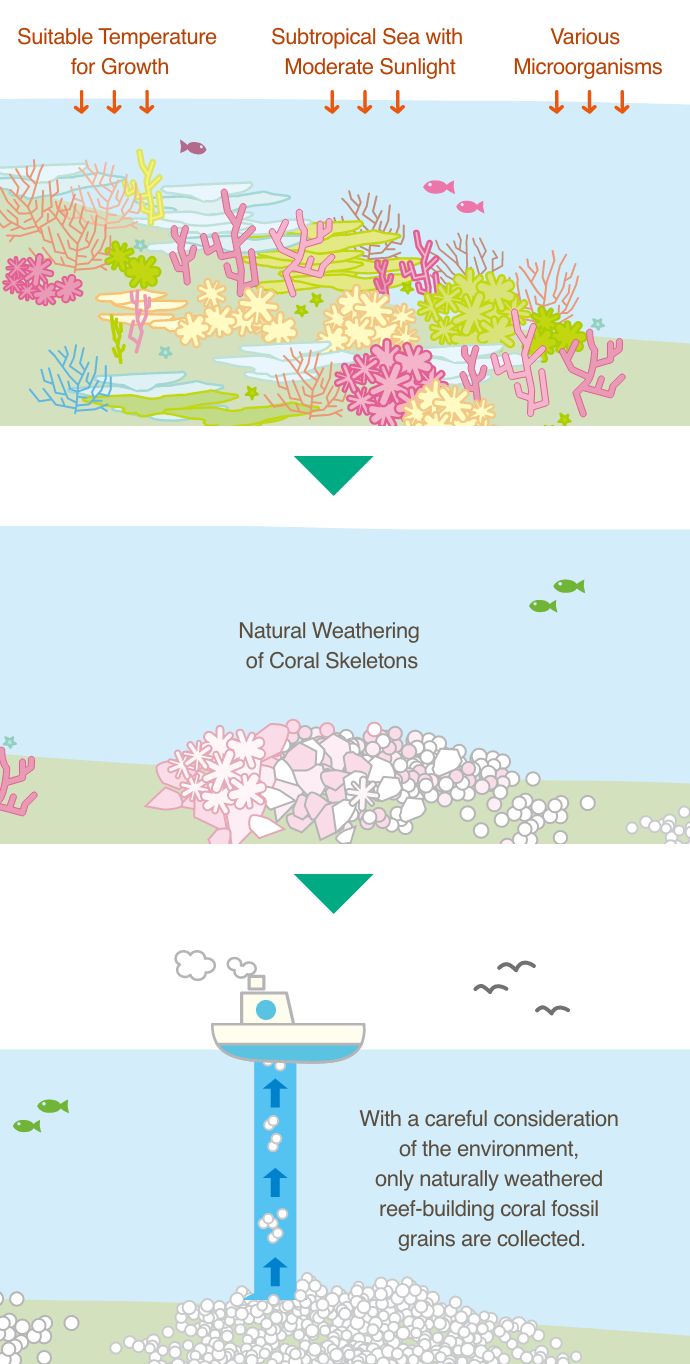
Natural Coral is used in Various Products
As a Water Purification Agent
The action of natural coral grains removes impurities such as residual chlorine and chlorine odor, making tap water mild and enjoyable. It also helps to alkalize acidic drinking water. Minerals in their natural balance dissolve into the water, creating good, mineral-rich drinking water.
*Electron Micrograph
Micron-size pores of 10μm or less remove foreign matter, iron rust, and heavy metals
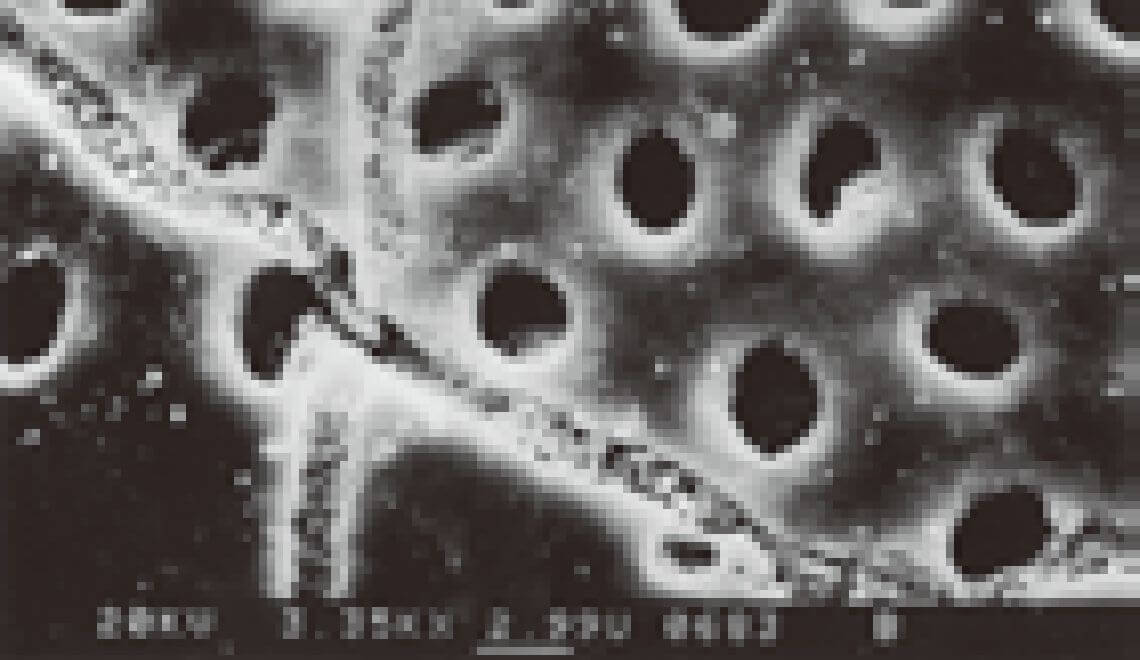
As a Health Food
Coral grains collected from the seabed of subtropical Okinawa contain abundant essential minerals such as calcium, magnesium, zinc, copper, manganese, iodine, and selenium in their natural balance. This mineral ratio is the ideal balance for the human body, and it is a nutritionally functional food recommended for supplementing minerals that modern people tend to lack.
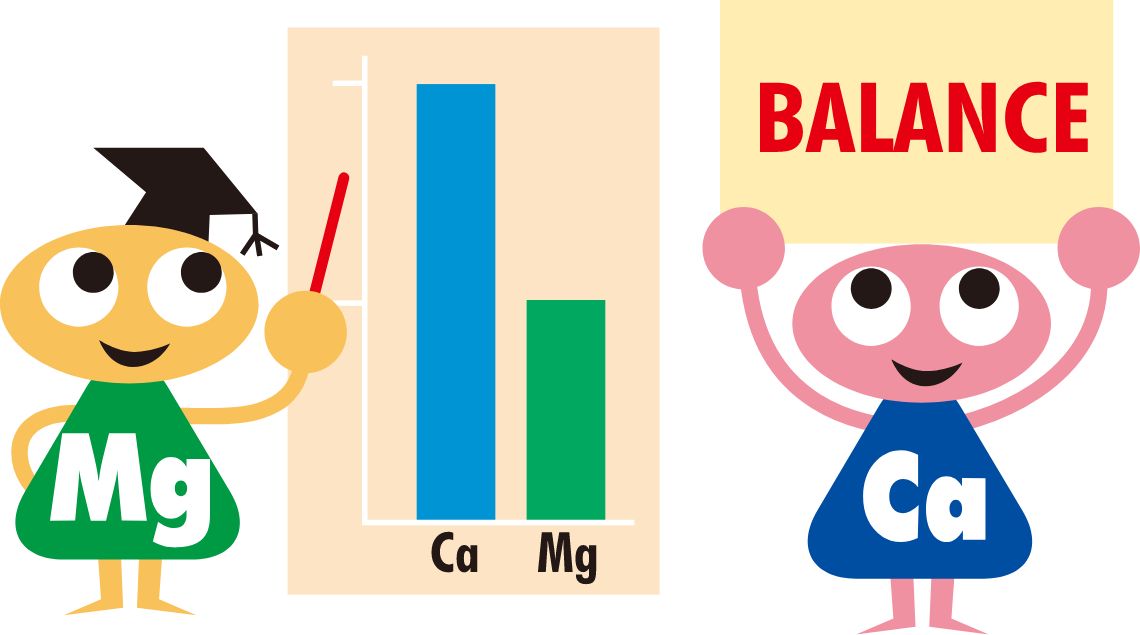
As Cosmetics
The micron sized pores in the coral powder in soaps efficiently absorbs old horns and dirt from skin pores. No need to scrub so no harm to your skin. Lotion rich in naturally-derived minerals smoothly penetrates into the stratum corneum and moisturizes, leading to fresh skin.
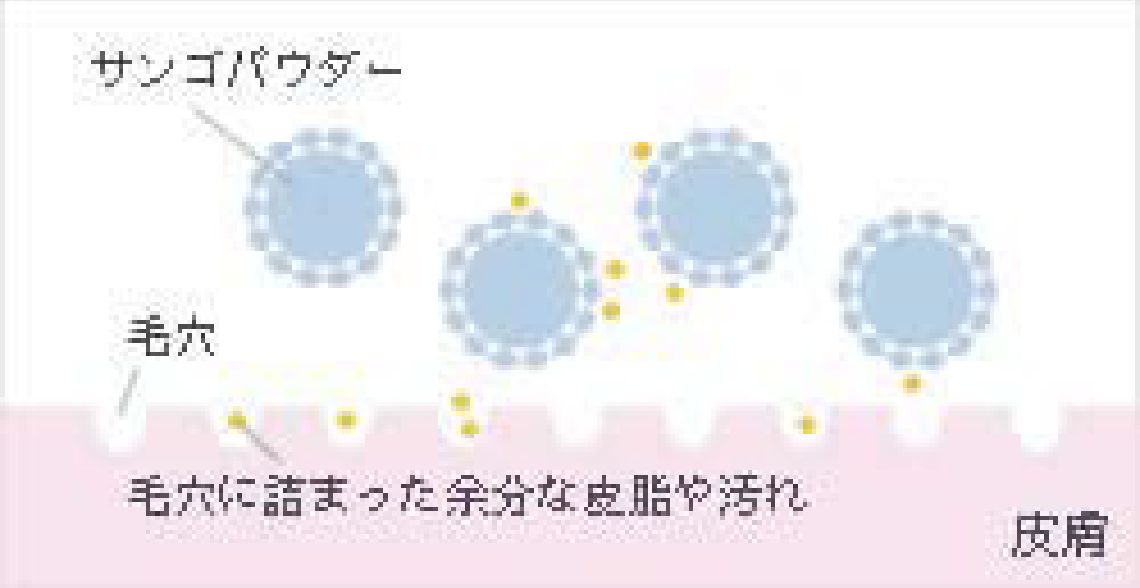
Coral Q&A
Q1. Where is the raw material coral harvested?
Okinawa Prefecture, Japan. Collected from the clean seabed without pollution in subtropical Okinawa.
Q2. Can you eat coral?
Yes, you can. The skeleton of dead coral contains abundant minerals from the sea that were accumulated during life, and is effectively used as a natural mineral material.
Q3. Are you collecting live corals?
No. No live corals are touched. Marine Bio’s weathered reef-building corals are granules of fossilized coral that have been naturally weathered, and are not harvested by methods that destroy the environment.
Q4. Does it harm living corals?
No. The areas where weathered reef-building coral can be collected are strictly defined by the Okinawa Prefecture. We have set our own standards even higher, and we only collect sea beds that are far beyond 1,000 meters from the coast and deeper than 60 meters, where there are no living corals.
Q5. Will the weathered reef-building coral deplete?
Approximately 1.2 million tons of weathered coral deposits are naturally produced each year in the waters around Okinawa due to the natural environment cycles. The amount used by Marine Bio is less than 1,000 tons, which is only 1/1,200 of the total amount of naturally occurring fossilized reef-building coral grains. Very safe to say it will never run out.
As a corporate member of a nature conservation organization, Marine Bio supports activities to protect the natural environment where corals exist.
We strive to preserve the blessings of the sea by such activities as extermination of crown-of-thorns starfish, a natural enemy of corals.
Photo by (c)Tomo.Yun
(https://www.yunphoto.net)
Some of the underwater photos used on the website were provided by the “Yun Free Photo Collection”.


